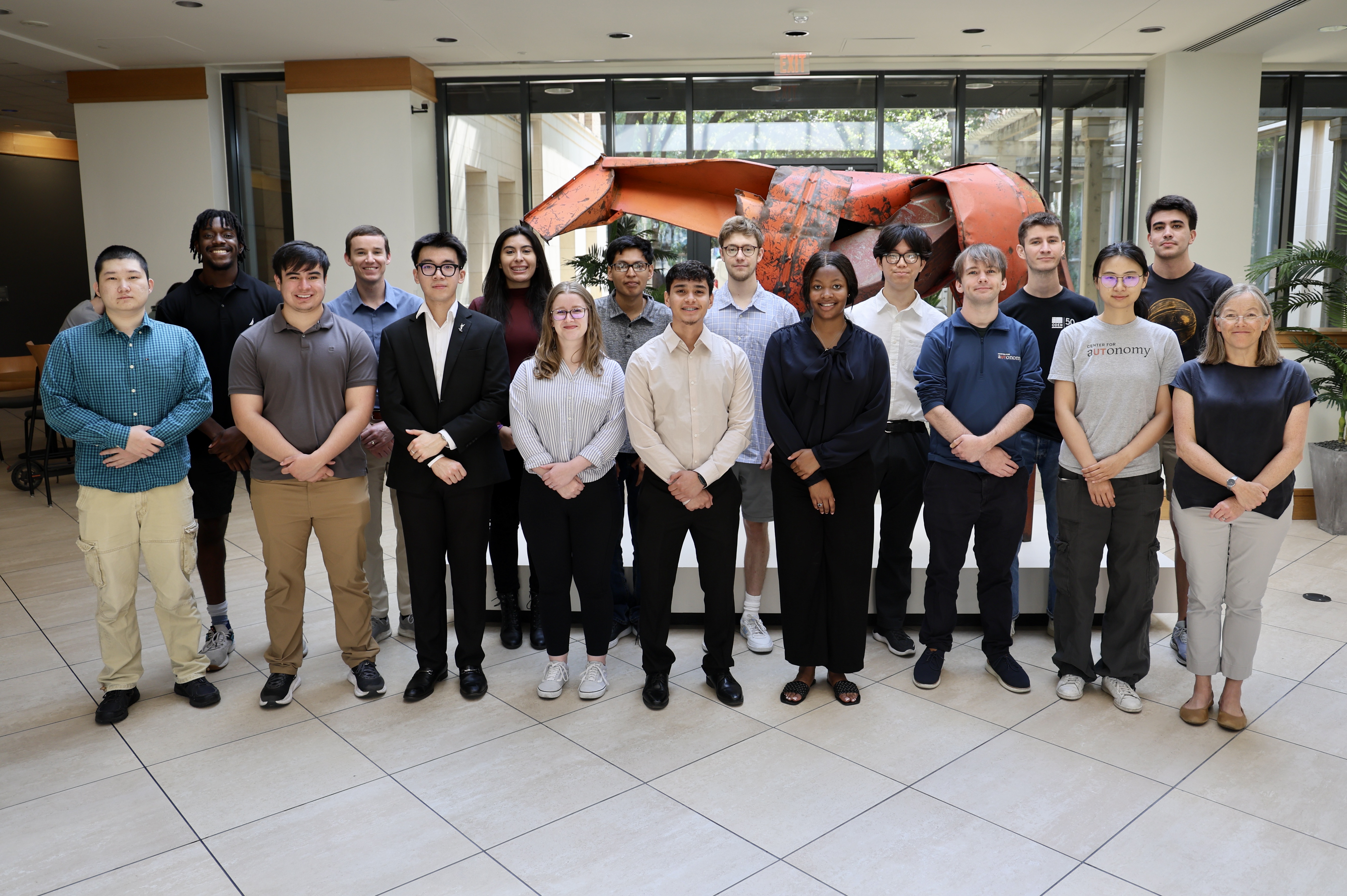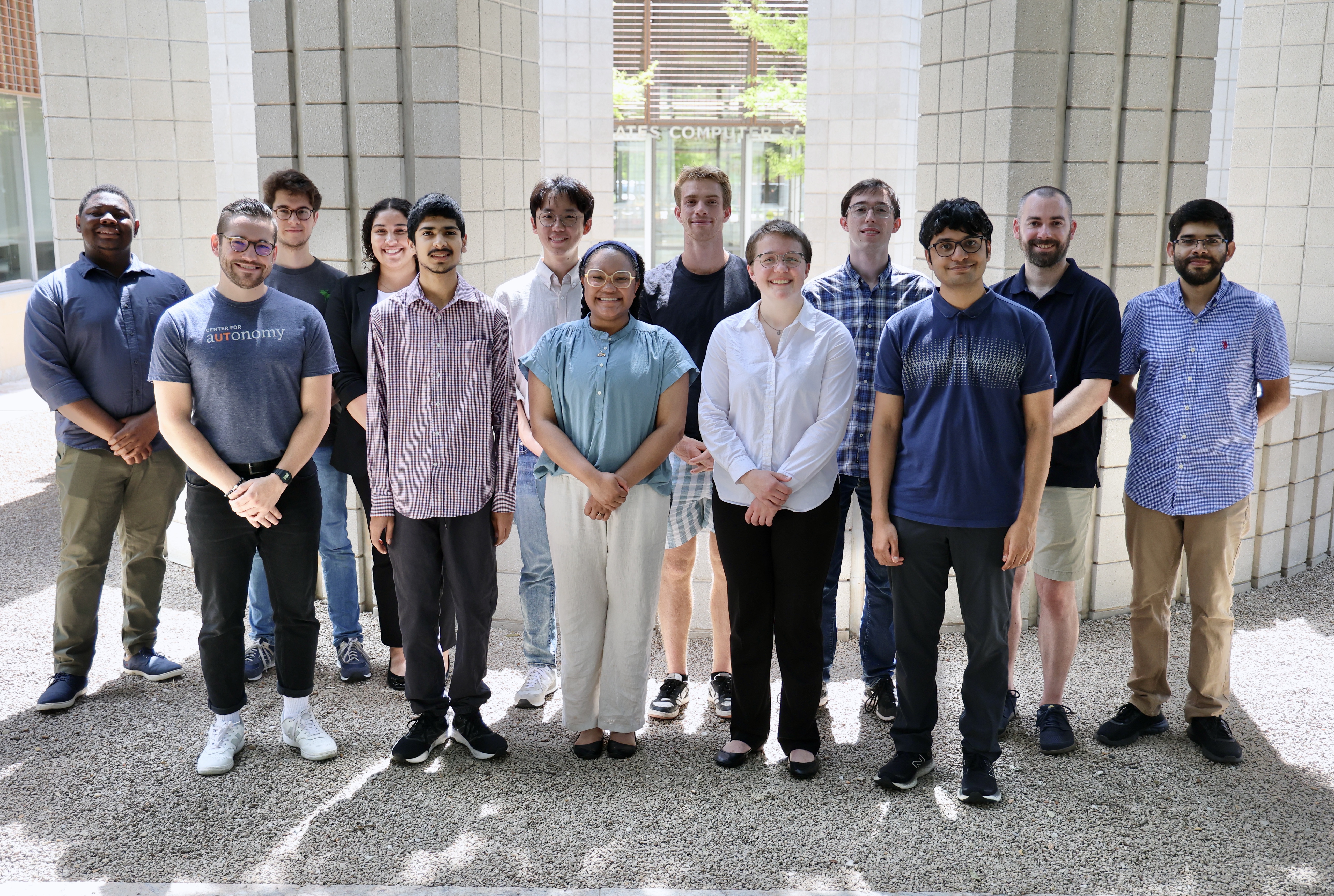The Center for Autonomy at the Oden Institute for Computational Engineering and Sciences was host to four outreach programs for undergraduates over the summer. The programs were: Army Educational Outreach Program (AEOP), The Realtime Adaptation REU, NASA University Leadership Institute (ULI), and Introductory Research Experience in Autonomy and Control Technologies (REACT) program. These programs bring together research opportunities in robotics, programming, and artificial intelligence to design systems that enable autonomous robots to navigate unpredictable real-world environments.
Over the course of the three eight-week programs, AEOP, Realtime Adaption REU and NASA's ULI, interns contributed to both software and hardware engineering tasks, supporting ground and legged platforms such as Clearpath Jackals, a Husky, and Unitree Go2 quadrupeds. Under the guidance of research mentor Dr. Christian Ellis and Ph.D. students, participants break down complex research objectives into achievable tasks, ultimately developing software to work seamlessly with real robotic systems.
In addition to this work, AEOP interns explored individual robotics projects. Om, one of the AEOP students, designed and built a small, low-cost RC car. According to Will Ward, Research Engineer at the Oden Institute in the Center for Autonomy, “Not only was this a great hands-on robotics project for Om, but his design will also serve as the example model for our upcoming outreach program with Del Valle Independent School District, where high school students will build their own RC cars this fall.”
The AEOP program includes formal presentations: an early-stage overview and a final summary, alongside a research poster for the Oden Institute and an abstract for the AEOP program booklet. Eligibility is open to high school and undergraduate students.

